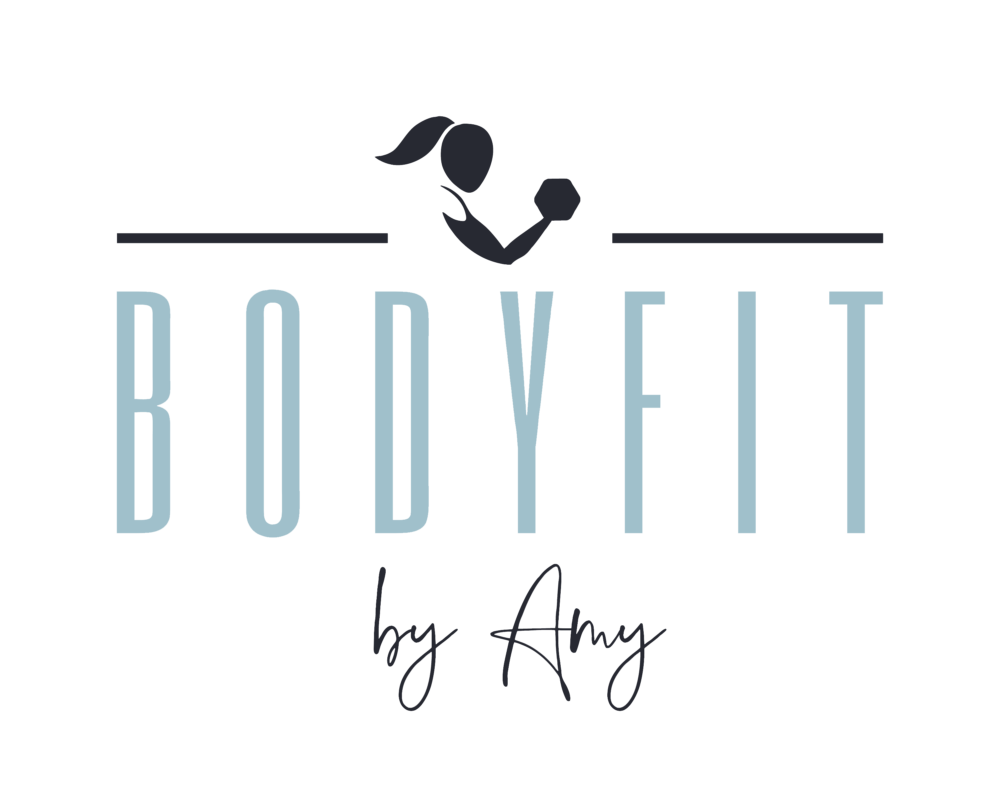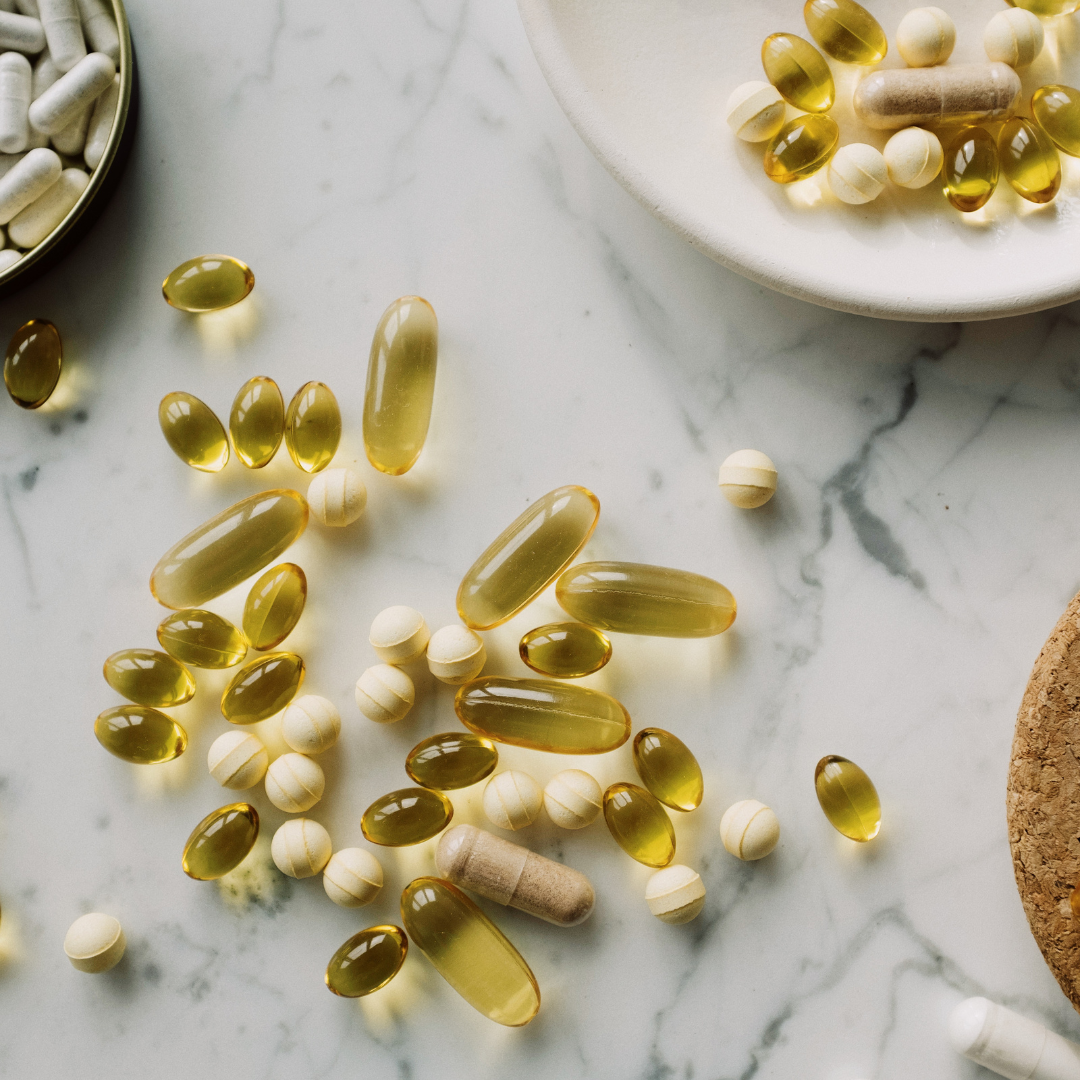Do you take a daily supplement? If the answer is yes, you are certainly not alone. More than 80 million people in the United States take a daily supplement as a powder, pill, or liquid. The supplement industry is worth a whopping 50 billion dollars, and supplements are popular worldwide. With vitamin D, calcium, collagen, fish oil, and the good ole’ multivitamin being the more common ones, people often ask:
- Do supplements do anything?
- Do I *need* them for good health and longevity?
- How do I know that my supplement is of good quality?
- Who should take a supplement?
- How do I know what supplements I need?
- What are the BodyFit dietitian’s favorite supplements?
I know these questions come up for you, especially as you debate whether you should spend your hard-earned money on trendy supplements. Let’s dive in!
Do supplements do anything?
As a dietitian, I am not against supplements, but I strongly believe in a food first, supplement second philosophy. Supplements are meant to SUPPLEMENT your diet, not act as replacements for a non-nutritious diet. Recently, the U.S. Preventive Services Task Force, a non-government independent panel of evidence-based medicine experts, reviewed over 84 studies involving hundreds of thousands of people over 30 years. The task force concluded that vitamin and mineral supplements are not effective at preventing death, cardiovascular disease, or cancer. Now, sure, no supplement will prevent you from dying — we’re all headed there eventually. But, it’s important to note that taking these supplements to reduce your disease risk is ineffective.
Supplements are helpful for people with nutritional gaps. But, taking a supplement as a preventative measure if you already eat nutritious foods, engage in regular movement, manage stress, and sleep well may be a waste of your money.
Do I *need* them for good health and longevity?
No. Supplements are not meant to help you live longer or improve your health on their own. A supplement can improve your health and help you live longer only if you are deficient in a specific nutrient. Let’s say you do not eat animal-based products (vegan) and struggle with getting vitamin B12 from food. Not getting enough of this essential vitamin can harm your health and cause premature death. Taking a supplement can fill that gap, which, in turn, would improve your health and longevity.
How do I know that my supplement is of good quality?
The U.S. Food and Drug Administration (FDA) loosely regulates the supplement industry. And, by loosely, I mean, loosely! Getting a high-quality supplement is tricky. With loose regulations, supplements can contain ingredients you may not know about. An analysis from 2007 – 2016 showed that 776 dietary supplements had unapproved pharmaceutical ingredients. These unapproved ingredients were mostly found in products marketed for sexual enhancement, weight loss, or muscle building. In recent news, nootropics (brain-boosting supplements) caused a scandal when five unapproved pharmaceutical drugs — in possibly dangerous combinations and doses — were in over-the-counter brain supplements. So, should you swear off the supplement industry forever? Not exactly! There is hope. Look for a supplement with third-party testing verification like USP or NSF. A supplement with these seals guarantees quality and safety.
Who should take a supplement?
If you are a person who eats mostly nutritious foods, you likely don’t need a supplement. These people likely need a supplement (of course, speak with your healthcare provider to discuss your supplement dosage and needs):
- People with digestive or malabsorption disorders – think about not being able to absorb certain nutrients because of frequent diarrhea.
- People who have had gastric bypass surgery – most of these individuals eat small amounts, making it impossible to get all essential vitamins and minerals from food alone.
- People with a specific vitamin or mineral deficiency – such as vitamin D, vitamin B12, iron, or calcium.
- People with restrictive diets
- People who take medications that interfere with nutrient absorption
- Pregnant and/or breastfeeding women – this isn’t always the case, so check in with your provider!
- People who don’t eat a lot of fish (…and could benefit from a fish oil supplement)
How do I know what supplements I need?
If you suspect you need a supplement, speak with your healthcare provider to ensure you really need them.
What are the BodyFit dietitian’s favorite supplements?
Ritual Vitamins: I take these daily to cover any nutritional gaps and to get Omega 3s. These are USP verified. That said, I certainly do not *need* them since I prioritize nutrition from food. These are a nice-to-have, and they fit within my budget, so I take them. But, again, they are not a requirement.
Vital Proteins Collagen Powder: I wrote about collagen supplements extensively HERE! These are not required, but the research is promising in this area!
Bio K+ Probiotic: These are pricey but the highest-quality probiotic supplement. I only take these when I feel like my digestion is off (AKA too many days of cocktails and restaurant food!). Or after taking medications that irritate my stomach.
Want to learn more?
I wrote about green powder supplements HERE. I also answer all protein powder questions HERE. If you want to ask me your questions directly, join me in the BodyFit Athletic Club to discuss your specific goals and possible needs.





I enjoyed your blog on vitamins. I have a question. I am in menopause and have no engery what vitamin do you recommend for these symptoms? Lot of vendors tell you a lot of stuff and it is incorrect. I feel that I can trust you. Your help would be greatly appreciated.